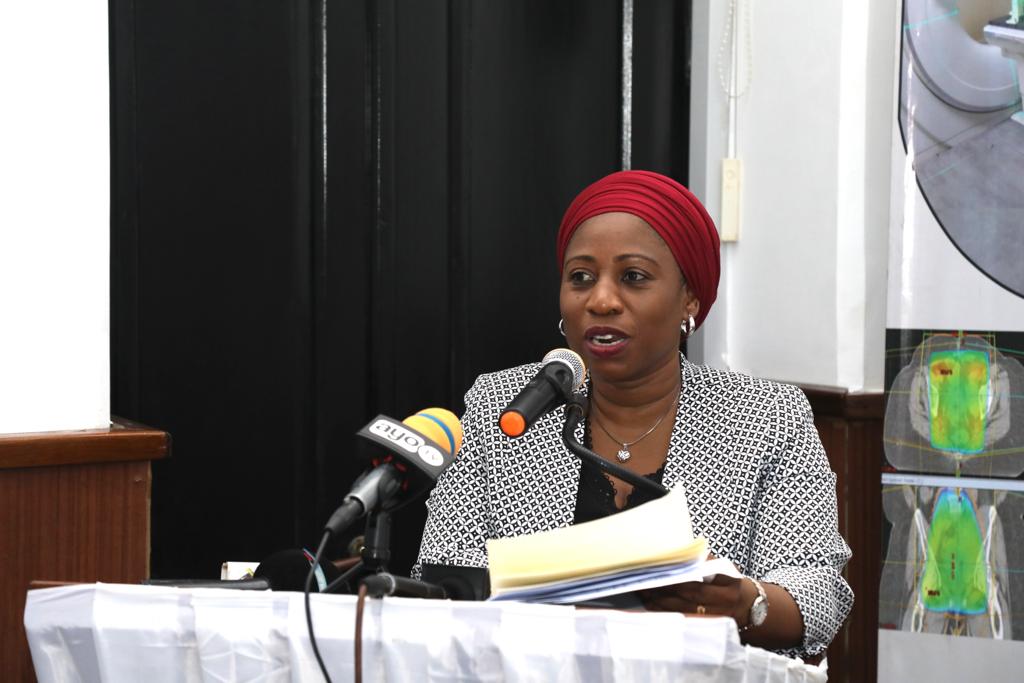
Tanzania to establish a tool to control the prices of health services
Dodoma. The Ministry of Health in Tanzania is establishing a national body to control the prices of health services at all levels as is done in the control of water costs.
This was said today, Monday May 13, 2024, by the Minister of Health, Ummy Mwalimu while reading the estimated revenue and expenditure of the ministry for the year 2024/25 of Sh1.31 trillion.
“The government intends to establish a national body for controlling the prices of health services at all levels in the country, as is done in controlling the costs of water, electricity and fuel,” said Ummy.
He said the goal is to control the arbitrary growth of health costs for citizens, especially those without health insurance.
Ummy has said that the establishment of the body has been allocated funds in the 2024/25 budget as one of the strengthening of the health services financing systems in the country.
He said that Sh6 billion has been allocated to cover these activities.
He has mentioned that these activities are to review the strategy of obtaining financial resources to cover health services.
The other is to manage the implementation of the Universal Health Insurance Law in the country, including the system of identification of beneficiaries as well as providing education to citizens about the importance of health insurance.
“To start the process of establishing a national body for controlling the prices of health services at all levels,” he said.
Also, other activities that will be done are strengthening the vitality and resilience of the National Health Insurance Fund (NHIF) and partnerships between the Government and the private sector in the provision of health services in the country.
“Seeking and coordinating access to health funds from development stakeholders,” said Ummy.
In addition, Ummy has said that they realize that health services are constantly changing based on changes in technology and real market conditions, the increase in non-communicable diseases and the growth of the public and private health sector.
As a result, NHIF will conduct a review of its benefits every two years.
He has said that for the year 2023, the major things that have been improved in the NHIF benefit package include the increase of 254 new, effective drugs that members previously had to pay in cash because they were not part of the 2016 package.
“178 drugs that were not on the National Essential Medicines List (NEMLIT) have been added after the Ministry reviewed NEMLIT and issued 249 additions (addendum) and thus were included in the NHIF budget for 2023,” he said.
He has mentioned other things to prevent members from continuing to use drugs that do not have positive results, thus protecting them from non-communicable diseases due to the resistance of the respective drugs.
Also, Ummy has said that they have moved specialist and professional services closer to the people, starting from regional and regional hospitals, to remove the inconvenience of missing some medicines and other services.
He has said that the services that have been moved include cancer treatment, orthopedic surgery, and heart surgery which were previously provided only in national level hospitals.
“To keep the balance of the registration fee and to see doctors with the same education and professions for NHIF beneficiaries. For example, for the new specialist doctor at the regional referral level, the fee has increased from Sh15,000 to Sh25,000, which is the same as the fee for seeing a doctor at the regional and national level.
“This step will attract specialist doctors to work in regional referral hospitals, especially in the peripheral areas.”
“Also, the registration fee and seeing a doctor for NHIF beneficiaries at the district level has increased from Sh5,000 to Sh7,000, at the health center level from Sh2,000 to Sh7,000 and at the clinic level from Sh1,000 to Sh3 ,000.”
He said that the measure will increase income in centers and incentives for the staff of clinics, health centers and district hospitals and thus attract doctors to work in those centers.
All Categories
Recent Posts
Tags
+13162306000
zoneyetu@yahoo.com



